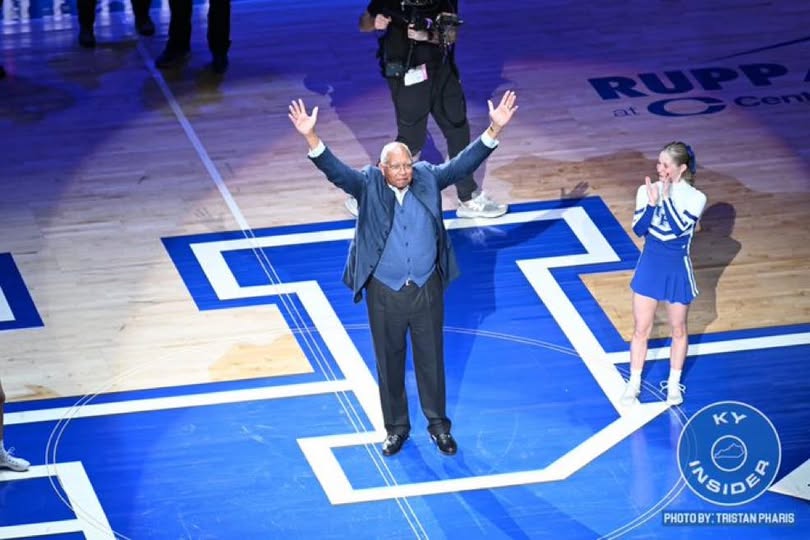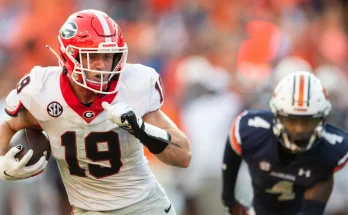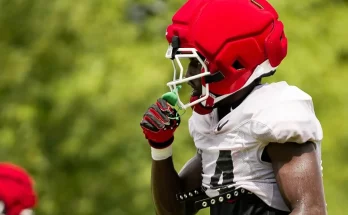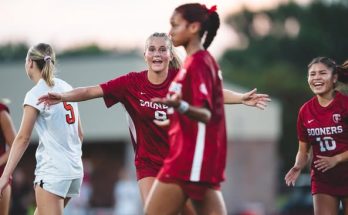Today we pause to honor a true icon of college basketball—Orlando “Tubby” Smith, as he turns 74 years old. Though his legacy spans multiple programs, it is his remarkable run at the University of Kentucky that stands tallest, capped by a 1998 national championship that etched his name permanently into Wildcat lore.
More than just a title-winning coach, Tubby Smith is widely regarded as a man of high integrity, relentless work ethic, and quiet strength. He is a gentleman in every sense of the word, and as we celebrate his birthday, we also celebrate the countless lives he has influenced—on and off the court.
A Humble Beginning: From Maryland to the Bluegrass
Born June 30, 1951, in Scotland, Maryland, Tubby Smith was one of 17 children raised by Guffrie and Parthenia Smith. From an early age, Tubby’s path was guided by strong family values and a deep commitment to doing things the right way.
He earned his nickname “Tubby” from his childhood days of frequently playing in a washtub—something his mother never let him live down, even after becoming one of college basketball’s elite coaches.
After graduating from High Point University in North Carolina, where he starred as a player, Smith began his coaching career modestly—taking on roles at Hoke County High School and later joining the collegiate coaching ranks as an assistant under George Felton at South Carolina. But it wouldn’t be long before he rose through the ranks, driven by grit, grace, and a passion for player development.
Arriving in Lexington: A Historic Appointment
In 1997, following the departure of Rick Pitino, the University of Kentucky named Tubby Smith as its 22nd head coach—and in doing so, made history. Smith became the first African American head coach in Kentucky men’s basketball history, and only the second Black coach to win an NCAA championship (joining John Thompson).
Kentucky fans, still basking in the glow of a 1996 national title and a runner-up finish in 1997, had sky-high expectations. And Tubby didn’t disappoint.
The 1997-98 Season: “Comeback Cats” Write History
In his very first season, Smith inherited a roster full of talent—players like Jeff Sheppard, Scott Padgett, Nazr Mohammed, Wayne Turner, and Heshimu Evans. But what stood out that year wasn’t just the talent, but the resilience.
Nicknamed the “Comeback Cats,” Smith’s 1998 Kentucky team became renowned for their thrilling second-half surges and uncanny ability to overcome deficits. They came back from 17 points down to beat Duke in the Elite Eight. Then, after defeating Stanford in overtime in the Final Four, they met Utah in the national championship.
Once again, they trailed at halftime.
And once again, they rallied behind Tubby’s calm demeanor, smart adjustments, and a total team effort to win 78–69, giving Kentucky its seventh national championship and making Tubby Smith the first head coach in NCAA history to win the title in his first season at a school.
More Than a Ring: Building a Culture of Character
Though that 1998 title remains Tubby Smith’s crowning achievement in the eyes of many, his legacy in Lexington wasn’t defined by just one year. Over 10 seasons (1997–2007), Smith led the Wildcats to a 263–83 record, five SEC regular-season titles, five SEC Tournament titles, and an incredible 10 consecutive NCAA Tournament appearances.
Under his leadership, Kentucky was a model of consistency.
But beyond wins and losses, Tubby Smith cultivated a culture of discipline, humility, and sportsmanship. He emphasized academics, held players accountable, and genuinely cared for their well-being. For Tubby, success was never just about banners—it was about building men.
Former players often speak glowingly of their time under Smith. Jeff Sheppard called him “a man of principle who never wavered.” Tayshaun Prince once said, “He helped me grow up and become more than a basketball player.”
Quiet Strength in the Face of Critics
Smith’s calm, reserved demeanor was sometimes misunderstood. In a state that lives and breathes college basketball, expectations are as high as Rupp Arena’s rafters. Despite consistent success, there were critics who felt Smith wasn’t flashy enough or questioned his offensive philosophy. Some fans yearned for the frenetic pace and pizzazz of the Pitino era.
But Tubby never responded with bitterness. Instead, he led with poise and class.
When he eventually chose to leave Kentucky in 2007 to become the head coach at Minnesota, he did so without fanfare. He left behind a program that was stable, proud, and still among the sport’s elite.
Beyond Kentucky: Continued Impact
Tubby Smith’s career didn’t stop at Kentucky. He went on to coach at Minnesota, Texas Tech, Memphis, and finally at his alma mater, High Point University. At every stop, he brought the same values—toughness, responsibility, and care for his players.
At Minnesota, he guided the Gophers to three NCAA Tournament appearances. At Texas Tech, he was named Big 12 Coach of the Year in 2016. His time at High Point was deeply meaningful—a full-circle moment for a man who never forgot where he came from.
In total, Tubby Smith has over 600 career wins and counting, making him one of the most successful coaches of his era.
Honors, Awards, and Hall of Fame Consideration
Tubby’s accomplishments have not gone unnoticed. He’s received:
- The 1998 Naismith College Coach of the Year
- SEC Coach of the Year (multiple times)
- The John R. Wooden Legends of Coaching Award
- Induction into the High Point University Athletics Hall of Fame
Many believe it’s only a matter of time before he’s inducted into the Naismith Memorial Basketball Hall of Fame, an honor he richly deserves.
Returning to Rupp: The 2021 Moment That Brought Tears
On New Year’s Eve 2021, Tubby Smith returned to Rupp Arena for a deeply emotional tribute. Kentucky was playing High Point, his final coaching stop, and Tubby was on the sidelines once again—but this time as an opposing coach.
The pregame ceremony saw a standing ovation, tears in the eyes of many, and heartfelt appreciation from Big Blue Nation. The university even inducted Tubby Smith into the UK Athletics Hall of Fame, giving him the recognition he so rightly earned.
John Calipari, his successor, said of the moment, “Coach Smith deserves this and so much more. He left this program better than he found it, and that’s the mark of a true legend.”
A Legacy Beyond Measure
Tubby Smith’s legacy cannot be quantified by wins alone.
It’s seen in the lives he touched—the young men he coached, the families he supported, the fans he inspired. It’s heard in the echoes of Rupp Arena when Kentucky fans chant his name, not out of nostalgia, but out of reverence.
It’s the image of a calm, composed leader on the sidelines, always putting team above self.
It’s the way he navigated one of the most pressure-filled jobs in America with humility, humor, and heart.
Birthday Reflections: Still a Champion at 74
Now at 74, Tubby Smith remains a beloved figure in college basketball. He’s a mentor, a husband, a father, and a community leader. His influence goes far beyond basketball courts.
When asked about his time at Kentucky, Tubby once said:
“It was an honor to coach at the University of Kentucky. It is the No. 1 basketball program in the history of college basketball, and to be part of that legacy, to win a national championship there—it meant the world to me.”
That gratitude flows both ways.
Because for Kentucky fans—young and old—Tubby Smith is forever a Wildcat. He’s the coach who led a team to glory, carried himself with dignity, and represented the blue and white with unmatched grace.



